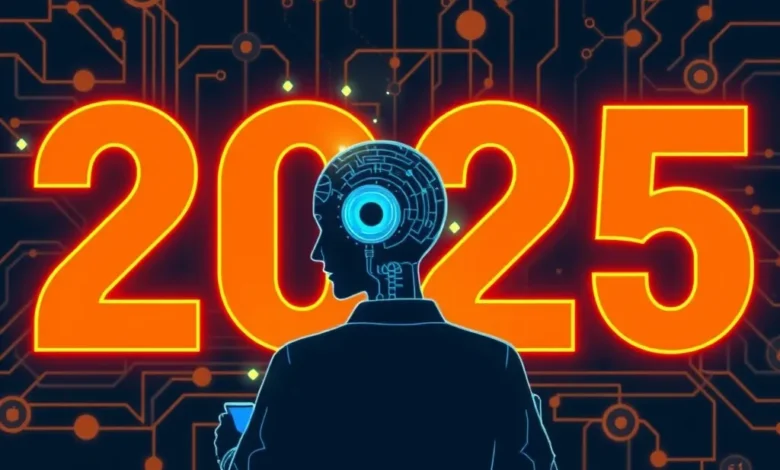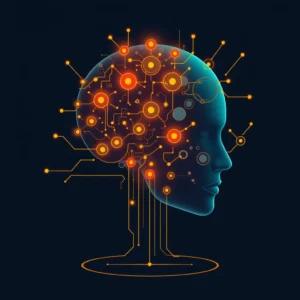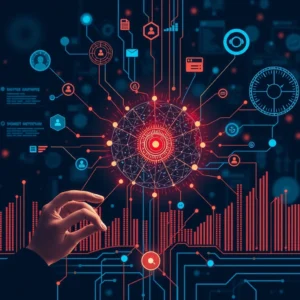Top 5 Business Trends to Watch for in 2025: From AI Integration to Hyperautomation

As 2025 unfolds, the business world is experiencing a technological and strategic transformation unlike any in recent memory. Driven by rapid advances in artificial intelligence (AI), automation, and data analytics, companies are rethinking how they operate, compete, and deliver value. Here are the top five business trends poised to shape the year ahead, and what leaders need to know to stay ahead of the curve.
1. Strategic AI Integration Across the Enterprise
AI has moved beyond the realm of experimentation and is now a core driver of business strategy and operations. In 2025, organizations are integrating AI into every layer of their processes—from customer support and marketing to supply chain management and product development. AI-powered systems are enabling smarter decision-making, predictive analytics, and real-time personalization.
For example, AI is helping companies automate customer interactions, analyze massive datasets for actionable insights, and optimize everything from inventory to employee scheduling. In sectors like healthcare, AI-driven diagnostics and predictive health models are improving patient outcomes, while in finance, AI is powering smarter fraud detection and risk management. The businesses that thrive will be those that treat AI not as an add-on, but as a strategic asset woven into their core value proposition.
2. The Rise of Hyperautomation
Hyperautomation takes traditional automation to the next level by combining robotic process automation (RPA), AI, machine learning, and advanced analytics to automate complex, end-to-end business processes. In 2025, hyperautomation is becoming a necessity rather than a luxury, enabling companies to streamline workflows, reduce costs, and improve scalability.
This trend is especially impactful in manufacturing, logistics, and financial services, where hyperautomation is driving predictive maintenance, real-time supply chain visibility, and rapid transaction processing. The integration of no-code and low-code platforms is democratizing automation, allowing non-technical employees to design and implement automated workflows, further accelerating digital transformation.
3. Data-Driven Decision Intelligence
With the explosion of data from connected devices, digital platforms, and customer interactions, businesses are shifting their focus from simply collecting data to turning it into actionable intelligence. In 2025, advanced analytics and AI-powered decision intelligence tools are helping leaders make faster, more informed decisions.
Companies are building “smart enterprises” where data flows seamlessly across departments, enabling real-time feedback loops and continuous improvement. Predictive analytics is being used to forecast demand, optimize pricing, and identify emerging risks before they become critical issues. The ability to harness unstructured data—such as social media sentiment or customer reviews—gives businesses a competitive edge in understanding market trends and consumer needs.
4. Autonomous and Intelligent Enterprises
The concept of the autonomous enterprise is gaining traction, with organizations leveraging AI and automation to handle increasingly complex tasks with minimal human intervention. In 2025, intelligent systems are managing everything from routine administrative work to high-level decision-making, freeing employees to focus on creative and strategic activities.
This shift is not just about efficiency; it’s about agility and resilience. Autonomous enterprises can adapt quickly to market changes, respond to disruptions, and scale operations without the bottlenecks of manual processes. As a result, businesses are investing heavily in intelligent business process management and integrated digital ecosystems.
5. Sustainability and Purpose-Driven Innovation
Sustainability continues to be a defining trend in 2025, as consumers, investors, and regulators demand greater accountability from businesses. Companies are embedding environmental, social, and governance (ESG) principles into their strategies, using technology to track and reduce their carbon footprint, ensure ethical sourcing, and promote transparency.
Innovations in clean energy, circular economy models, and sustainable supply chain management are not only helping the planet but also unlocking new revenue streams and strengthening brand loyalty. Businesses that prioritize purpose alongside profit are finding it easier to attract talent, secure investment, and build lasting relationships with customers.
Looking Ahead: Thriving in a Transformative Era
The convergence of AI, hyperautomation, data intelligence, autonomy, and sustainability is reshaping the business landscape in 2025. Organizations that embrace these trends—investing in technology, upskilling their workforce, and embedding agility into their culture—will be best positioned to thrive in a world of constant change.
As the pace of innovation accelerates, business leaders must remain vigilant, flexible, and forward-thinking. By staying attuned to these top trends, companies can not only navigate uncertainty but also seize new opportunities for growth and impact in the years to come.




